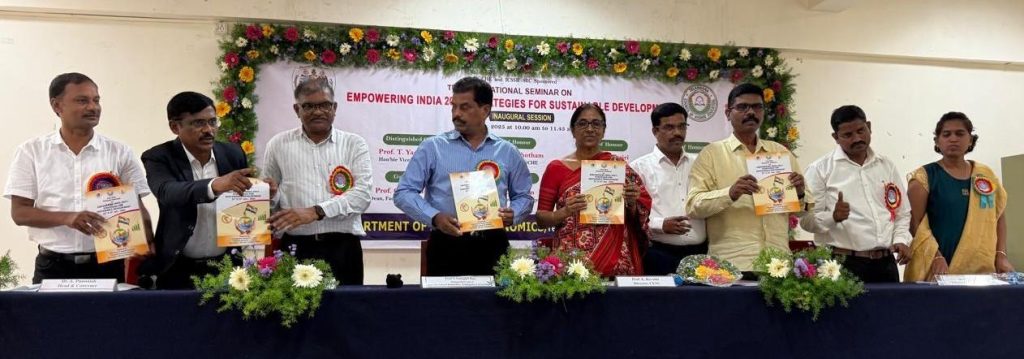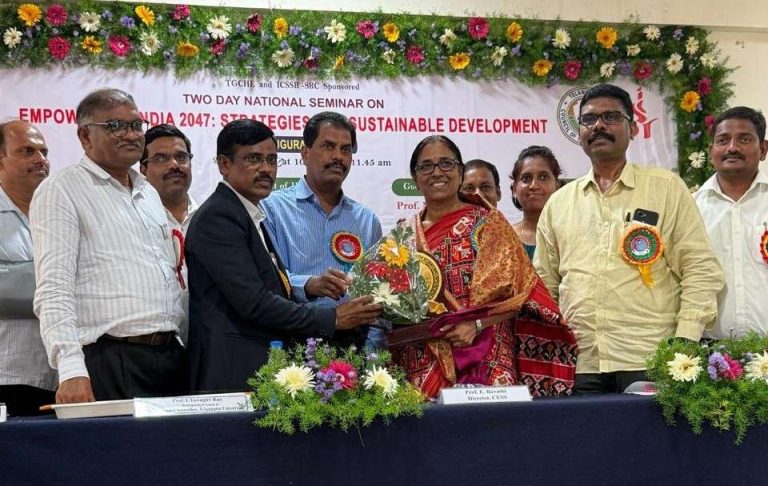Keynote Address Delivered by Prof. E. Revathi, Director, CESS, at the National Seminar on “Empowering India 2047: Strategies for Sustainable Development” at Telangana University
National Seminar on “Empowering India 2047: Strategies for Sustainable Development” Organized by Telangana University | Sponsored by ICSSR-SRC and TGCHE
Date: 23rd July 2025
Prof. E. Revathi, Director, Centre for Economic and Social Studies (CESS), Hyderabad, delivered the keynote address at the inaugural session of the two-day National Seminar on “Empowering India 2047: Strategies for Sustainable Development” organized by Telangana University, Nizamabad and sponsored by the Indian Council of Social Science Research – Southern Regional Centre (ICSSR-SRC), and the Telangana State Council for Higher Education (TGCHE).
In her keynote, Prof. Revathi emphasized the multidimensional approach to achieve sustainable development in India by 2047. She reiterated that sustainable development cannot be understood in isolation but must be examined in connection with inclusive growth, social equity, and participatory governance. She outlined that the empowerment of India should not be limited to urban-centric narratives or high economic growth alone, but must include rural transformation, upliftment of marginalised groups, and the building of equitable access to resources, education, and health.
The discourse around India @2047 needs to be grounded in the reality of socio-economic disparities and environmental constraints. She advocated for a bottom-up approach that enables people’s participation in governance, especially through the strengthening of Panchayati Raj Institutions and local self-governance mechanisms has been emphasized.
Prof. Revathi mentioned that institutions engaged in social science research must play a significant role in informing governments and civil society with data-driven insights and evidence-based analysis. She further emphasized that the role of education and public institutions must be reoriented to serve the needs of a socially just and ecologically sustainable society.
Prof. Revathi stated that in order to truly empower India by 2047, there must be a comprehensive and collaborative effort among policymakers, academia, civil society, and the youth. She called for strategic focus on gender equality, employment generation, rural infrastructure, access to clean energy, and inclusive digital governance. She concluded her address by reiterating that sustainable development should not merely be an aspiration but must translate into tangible improvements in the lives of the poor, marginalised, and vulnerable populations of the country.


